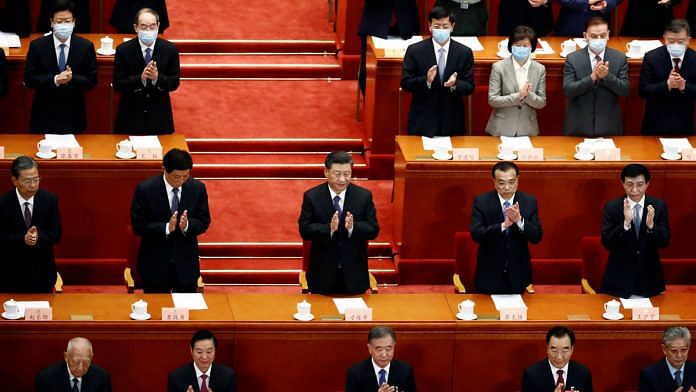
Thank you dear subscribers, we are overwhelmed with your response.
Your Turn is a unique section from ThePrint featuring points of view from its subscribers. If you are a subscriber, have a point of view, please send it to us. If not, do subscribe here: https://theprint.in/
A brief history
China started its experiment with capitalism back in the late 1970s under the then-Chairman Deng Xiaoping who adopted market reforms and emphasized on increasing the economic output of the nation as an essential prerequisite for building an advanced socialist society.
Deng’s revolution transformed China’s manufacturing and real-estate industry by capitalizing on the abundance of labor and by attracting foreign investments. By the time China joined the WTO in 2001, it was already the sixth-largest exporter of goods in the world. Since then, it has catapulted to become the world’s largest goods exporter and the second-largest economy of the world.
The incredible feats that China achieved since its integration into the world economy could largely be attributed to the Chinese Communist Party’s (CCP) schemes to incentivize production and its pioneering drive to digitize the economy.
Why is there a feeling of resentment among the Chinese?
Politically, China has always been a socialist society. However, the CCP had consciously decided to allow the proliferation of a free-market economy which gave rise to the likes of Alibaba and Tencent. As a result, China was seen as a prime example of a socialist nation that embraced the gains of a capitalist economy.
This duality in the Chinese system, however, was bound to create frictions someday. This was because the monetary gain that precipitated from the economic boom was largely limited to a select section of the population. A quick look at the data from the Social Mobility Index by the World Economic forum implicates that China lags behind the USA, Russia, and almost all the EU nations. China is ranked only 45th among the 82 countries that the Index tracks. The index measures how difficult/easy it is for individuals to move “up” the socio-economic ladder and the factors that affect the same. The accumulation of disproportionate wealth among rich people clearly stands as an impediment for low-income households who cannot afford good education and healthcare for their children.
According to an article by Forbes, China has gained the most billionaires in the recent decade. The Capitalism that raised millions out of poverty has also created large economic divisions within the Chinese society.
Xi’s reaction
In a bid to calm the social unrest that the increasing income disparity is precipitating in the Chinese society, Xi has initiated a series of crackdowns to stifle the growing influence of billionaires and big tech companies. His latest target has been the burgeoning Edu-tech sector of China. The new sweeping regulations brought in by the CCP have effectively destroyed the entire Edu-tech sector overnight. Xi reasoned that this was done to reduce the financial burden of education on families and improve the mental health of children. In recent years, he has also targeted other big-tech companies like Alibaba, Tencent, and Didi over their monopolistic practices and non-compliant behavior. Most noticeably, slapping a $2.8 billion fine on Alibaba during its anti-monopoly investigations. Collectively, the Chinese government has destroyed nearly a trillion $ in valuation just in the last month by throttling their tech firms.
It’s clear that the CCP is trying to reign in the tech giants and other billionaires to limit their public influence and exert their supremacy over everyone, no matter how economically capable they might be. However, there’s another aspect of these developments. Xi has realized that capitalism, which brings prosperity, also breeds economic inequality. His recent public statements and actions indicate that China is pivoting away from a free-market economy to a more governed way of dictating the market forces. It’s the Chinese way of bringing “Common Prosperity” for its people.
With China’s love affair with capitalism coming to an end, we move back to our initial question- can socialism and capitalism co-exist? Well, my answer to this question is, No. Keeping the issue of income disparity aside, there are other inherent issues as well. First of all, capitalism brings money, and money brings power. And in a socialist system, the state cannot afford a situation where few individuals gain enough power and influence to sway public opinion. Secondly, the proliferation of capitalism calls for the free flow of information and more direct engagement of its people with other democratic nations. Socialist nations feel that information and western influence can be a precursor to pro-democratic activism.
The Chinese government has consciously decided to destroy the wealth of the rich to appease the lower and middle-class section of their society in what they call a drive for Common Prosperity. Whether this decision to drive back towards socialism be fruitful in the long run remains to be seen.
Also read: SubscriberWrites: Why America’s presumptuous China policy needs a reset
These pieces are being published as they have been received – they have not been edited/fact-checked by ThePrint.

COMMENTS